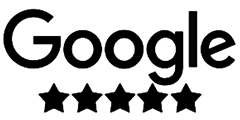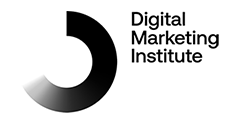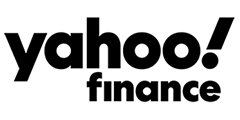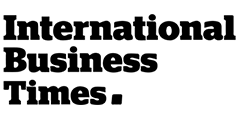
May 24, 2021
By
Kamran Awan
Category
Business
It’s been a crazy 16 months with the pandemic presenting challenges to us all in a unique number of ways. From social distancing to working from home, almost every single person on the planet has been affected in some way.
Enforced periods of lockdown have given many people the opportunity to reflect on their personal and professional lives. As with any generational event, there are some people who have done really well during the pandemic as we have seen real ingenuity and on the other hand, we have seen many struggles.
From a business perspective, the pandemic has really shaken certain industries over others. For example, the hospitality industry has been hit hard although there are signs of recovery. In contrast, technology and e-commerce businesses have seen huge growth as demonstrated by the likes of Facebook, Netflix and Amazon.
Looking away from specific industries, it’s interesting to see how the pandemic has affected businesses based on their sheer size. Walking through any town centre and you can see the impact the pandemic has had with a number of businesses closed for good.
Many large businesses have been slow to adapt to the new commercial realities and as a result have struggled to continue. Small businesses generally have been more agile although they have also suffered at the hands of the pandemic. Whilst governments all over the world have tried to limit the damage through schemes, grants and loans, the pandemic has been a challenging time for all.
Thankfully, as things start to transition back towards some form of normality, we find ourselves in a very different world as compared to the beginning of 2020. This is clear to see when you analyse things from the perspective of small businesses and their marketing strategies.
In this week's blog, we wanted to answer whether the pandemic has amplified the need for digital solutions?
Looking back to the start of 2020
The world was a very different place at the beginning of 2020 as we all went about our daily lives. From a small business marketing perspective, the traditional marketing activities were still effective. Posters, leaflets, word of mouth, incentives were just some of the staples of small business marketing.
While most businesses had a website and a social media account (e.g. Facebook), the onus was still on connecting with customers in traditional ways. However, things were about to change as a result of lockdowns with almost all face to face contact limited.
Businesses of all sizes but especially small business owners, needed to adapt and focus on their online strategies.
Traditional marketing challenges for small businesses
It’s been well documented over the years that small businesses struggle with technology and digital marketing. Unlike their larger competitors, small businesses traditionally do not have the time, resources and infrastructure to develop online marketing campaigns.
Tried and tested traditional marketing methods such as print advertising are a lot more accessible to small business owners who are often managing multiple priorities such as staff, customers, suppliers, financials etc.
Trying to develop an engaging online marketing strategy that includes multiple touchpoints has often been outside of the remit of many small business owners as they can’t allocate time and resources.
It is for this reason that many small businesses struggle to compete with larger businesses but the pandemic has actually seen a shift in focus for lots of small business owners.
A change in consumer behaviour
With more and more of us spending time at home over the last 16 months due to lockdowns and working from home guidelines, we have all ventured online to pass the time. Countless companies such as Amazon, Netflix, Facebook and Google have all reported a surge in online activity.
In fact, a recent study in the UK actually found that the average adult is now spending over 6 hours per day online. This represents a massive change in consumer behaviour as online is where many of us are spending the majority of our time.
The knock on effect of this for small businesses is a need to become visible on the platforms where the majority of their customers reside. Marketing is highly effective when a message is delivered to consumers on their platform of choice, whether that is online or offline.
As a result of this change in consumer behaviour, it’s no longer a luxury to have an online presence for small businesses but rather a necessity. This need and desire has fueled the growth of many small businesses now investigating how they can better market their products/services online.
Adjusting to the new normal
Building an online presence takes time, resources and a clear defined strategy. Simply having a website or social media account for a small business is not enough to connect with customers. In contrast, small businesses need to build a unified digital strategy that encompasses multiple touchpoints such as their website, social media, search engines, review sites, pay per click etc to engage their customers.
This is why lots of small businesses are turning to Digital Agencies who have the skills, experience and technology solutions that can assist in building or enhancing their online presence.
The dangers of not adapting
There will always be a certain percentage of small businesses who refuse or fail to adapt to the online world. This could be due to a lack of knowledge or resources but ultimately this could have dire consequences for the small business owner.
As we spend more and more time online, businesses that don’t have an online presence simply become invisible and over time, irrelevant to their customers. There is now a real expectation from customers to interact with local businesses online and therefore it’s no longer a luxury to have an online presence.
The businesses that stick to traditional marketing methods only and don’t offer a blend of online/offline experience will be the ones that suffer the most in the long term.
The outlook for the future
Technology, digital marketing and the change in consumer preferences are here to stay as we all use more online services than ever before. The simple reality is that we are now consuming more information online than ever before and the likelihood of going back to traditional methods is diminishing by the day.
Even as we eventually put the pandemic behind us, the changes that have occurred over the last 16 months will leave a lasting impression on small businesses. The status quo has been challenged and businesses of all sizes need to adapt to make sure they are still engaging with their customers on their platforms of choice.
Taking a look at different online studies or even statistics we highlighted in a blog article a few weeks ago, point to the acceleration of digital solutions for small business owners.
Industry analysts have concluded that over the past 1 year, we have seen the equivalent of 10 years of advancement in digital marketing and technology solutions when it comes to small businesses.
Summary
As we have seen throughout this week's blog, the pandemic has amplified the need for digital solutions as businesses seek to engage with their customers online. Building multiple touchpoints that span across online platforms give small businesses the chance to attract, engage and retain their customers.
However, as most small businesses do not have the knowledge, resources and infrastructure at present to offer a digital experience, many small businesses are turning to Digital Agencies for guidance.
To find out more about how you can help local businesses integrate digital solutions and exceed the expectations of their customers with your very own Digital Agency, please contact a member of our team.
Until next time, take care.
Share this Post






















